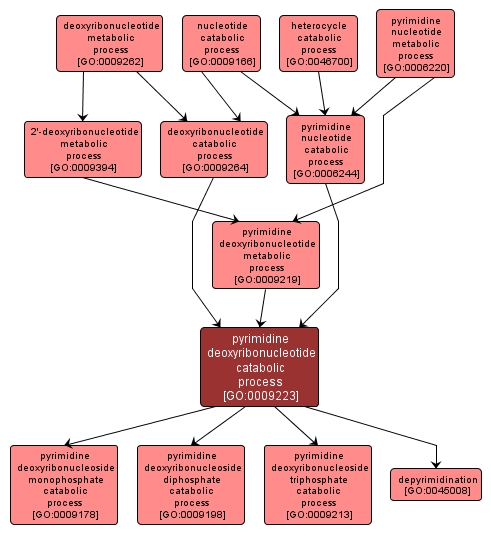GO TERM SUMMARY
|
| Name: |
pyrimidine deoxyribonucleotide catabolic process |
| Acc: |
GO:0009223 |
| Aspect: |
Biological Process |
| Desc: |
The chemical reactions and pathways resulting in the breakdown of a pyrimidine deoxyribonucleotide, a compound consisting of nucleoside (a pyrimidine base linked to a deoxyribose sugar) esterified with a phosphate moiety at either the 3' or 5'-hydroxyl group of its glycose moiety. |
Synonyms:
- pyrimidine deoxyribonucleotide breakdown
- pyrimidine deoxyribonucleotide degradation
- pyrimidine deoxyribonucleotide catabolism
|














